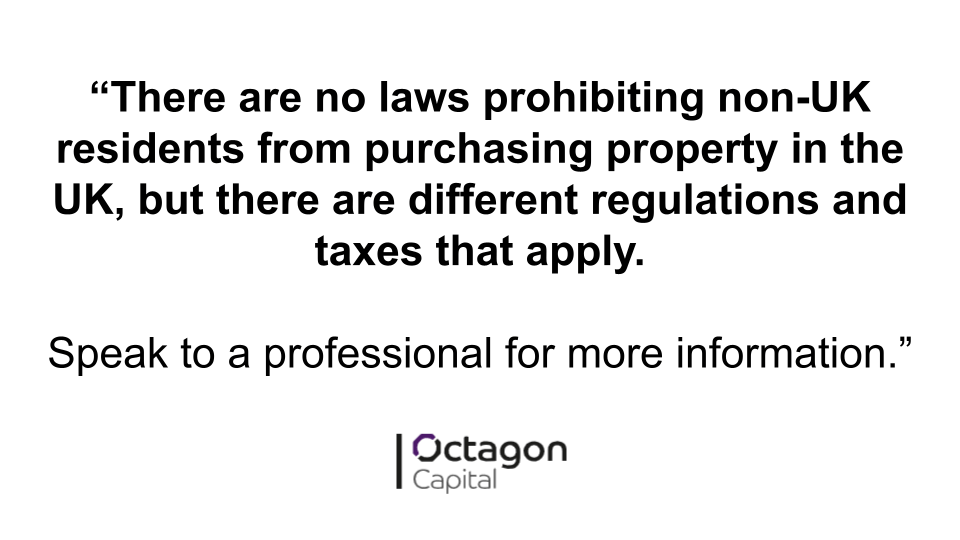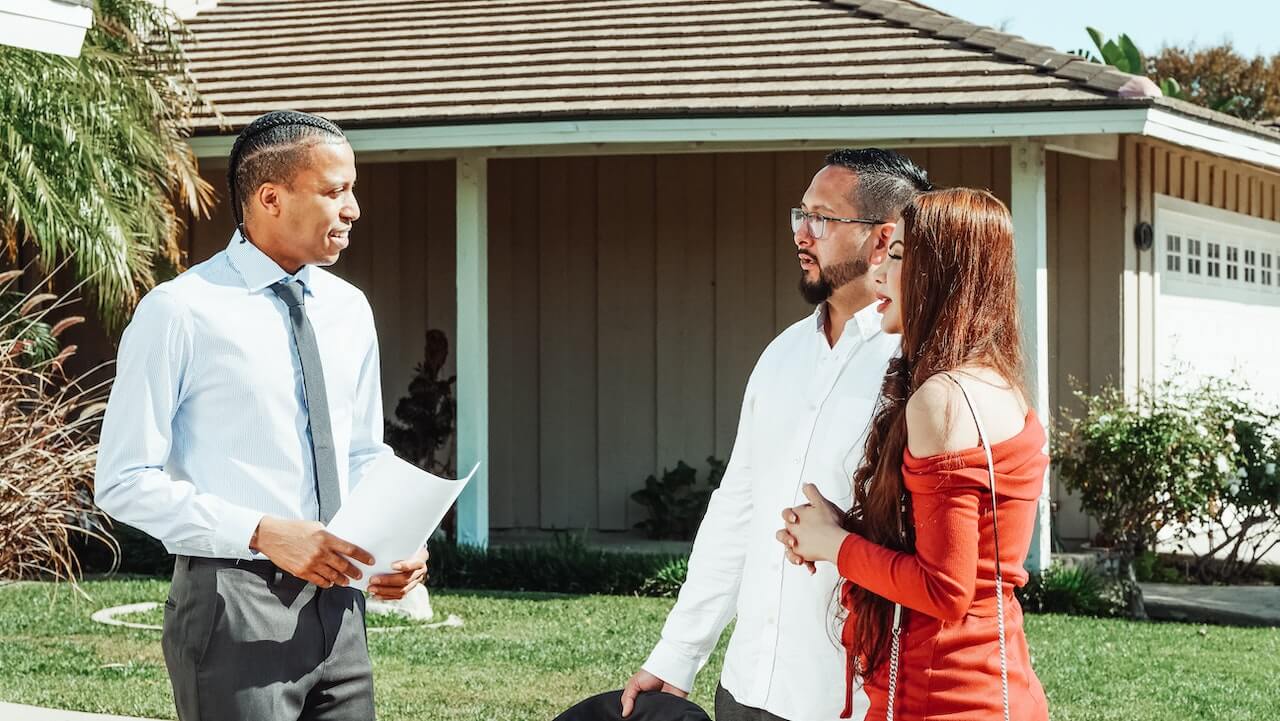Can non-UK residents buy a property in the UK?
Yes, non-UK residents are able to purchase property in the United Kingdom. However, there are some important considerations to keep in mind when doing so.
It can be crucial to understand the legal process of buying property, as it may be different to that of your home country. This will typically involve hiring a conveyancing solicitor to handle the legal aspects of the transaction, as well as a surveyor to assess the condition of the property. Non-UK residents may also need to obtain a mortgage from a UK lender in order to finance the purchase.
Purchasing property in the United Kingdom can be an appealing investment option for foreign investors, and can provide them with a steady income. However, the process of buying property in the UK can be complex for those who are not familiar with the legal and financial system.
Non-UK residents hold £90.7bn worth of property in the UK (Property Industry Eye). In this guide, we will explore important considerations that non-UK residents must make when purchasing a property in the UK, such as legal requirements, tax implications, and currency exchange rates. Whether you want to purchase a second home or an investment property, this article will provide you with the key information you need to navigate the process with confidence.
Want to speak to a professional about buying a property as a non-resident?
Speak to Raw Mortgages >>
Do non-UK residents pay more tax when buying UK property?
Yes, they can. For example, non-UK residents may be subject to higher stamp duty rates on their purchase, as well as potential capital gains tax if they sell the property in the future. You should consider whether it might be worth it to consult with a tax advisor to help you fully understand the tax implications of buying property in the UK.

What else should they consider?
Another important consideration for non-UK residents is the currency exchange rate. The exchange rate between the pound and other currencies will fluctuate, which can have a significant impact on the overall cost of buying a property in the UK. Keep an eye on the exchange rate and consider using a currency exchange specialist to help minimize the impact of currency fluctuations.
Currency rates will be important when purchasing the property, but also when dealing with fees. There will be upfront costs including surveys, legal fees and Stamp Duty Land Tax (SDLT), and also ongoing costs like insurance, mortgage repayment, and repairs.
You can reduce at least some of these costs by checking the property’s Energy Performance Certificate (EPC). This rates houses from A (best) to G (worst) on their energy performance. Buying a property with a good score can lead to savings down the line.
Another thing to consider is location. As with any property purchase, location is a key factor to consider. Non-UK residents should research different areas and neighborhoods to find a location that meets their needs and preferences.
Non-UK residents should also check what paperwork they may need to do before they start their purchase. They might need to look at visa requirements for entering and exiting the UK, as well as the length of time they are permitted to stay in the country.Non-UK residents should also ensure they have the appropriate insurance in place to protect their property, such as building and contents insurance.
Is it difficult for foreign investors to buy UK property?
It can be, but it is not necessarily. The legal and financial process of buying property in the UK is similar for both domestic and foreign buyers. However, foreign investors may face some additional challenges, such as language barriers, cultural differences, and a lack of familiarity with the UK property market.
For example, foreign investors may need to navigate the legal and financial systems of the UK, which can be complex and confusing for those unfamiliar with the process. They may also need to find a reliable solicitor, surveyor, and mortgage lender who is experienced in working with international buyers.
Finally, foreign investors may have a slightly harder time getting a mortgage. Working with a specialist lender can help solve this problem.
